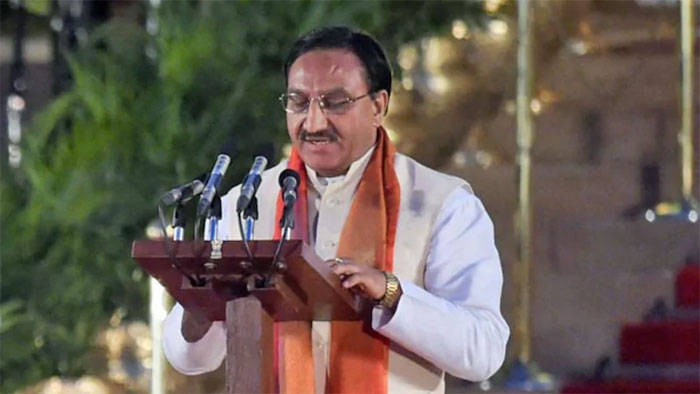The new NEP emphasizes on continuous professional development (CPD) for improvement of skills of teachers – Nishank
New Delhi/ Delhi
National Education Policy (NEP) 2020 provides different timelines as well as principles and methodology for its implementation. Implementation is to be guided by the following principles:-
- Implementation of the spirit and intent of the Policy.
- Implementation in a phased manner.
- Prioritisation in ensuring optimal sequencing.
- Comprehensiveness
- Joint monitoring and collaborative implementation between the Centre and States.
- Timely infusion of requisite resources.
- Analysis and review of the linkages between multiple parallel steps.
National Education Policy2020,recommends training of Anganwadi workers/teachers in accordance with the NCERT’s curricular and pedagogical framework. It also advocates a 6-month certificate programme forAnganwadi workers/ECCE teachers with qualifications of 10+2 and above and a one-year diploma programme covering early literacy, numeracy, and other relevant aspects of ECCE to those with lower educational qualifications. These programmes may be run through digital/distance mode using DTH channels as well as smartphones, allowing teachers to acquire ECCE qualifications with minimal disruption to their current work. NEP also stresses on the State Governments to prepare cadres of professionally qualified educators for early childhood care and education, through stage-specific professional training, mentoring mechanisms, and career mapping.
NEP mentions various timelines for important themes and activities. For training of teachers, NEP emphasizes on continuous professional development (CPD) for improvement of skills of teachers and learning the latest innovations and advances in their professions through multiple modes, including in the form of local, regional, state, national, and international workshops as well as online teacher development modules. Each teacher is expected to participate in at least 50 hours of CPD opportunities every year for their own professional development, driven by their own interest, covering the latest pedagogies regarding foundational literacy and numeracy, formative and adaptive assessment of learning outcomes, competency-based learning, and related pedagogies, such as experiential learning, arts-integrated, sports-integrated, and storytelling-based approaches, etc.
This information was given by the Union Minister for Human Resource Development, Shri Ramesh Pokhriyal ‘Nishank’ in a written reply in the Rajya Sabha today.

